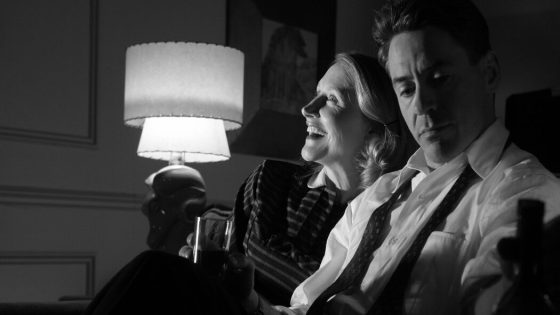For 20 years, Participant Media has been Hollywood’s pre-eminent maker of activist entertainment, backing socially conscious films like “An Inconvenient Truth,” a climate change cri de coeur, and “Wonder,” about a boy with birth defects. Its movies have won 21 Academy Awards.
But the company never quite managed to do good while also making money, at least not consistently. Matt Damon in a fracking drama (“Promised Land,” a 2012 Participant effort) has a hard time competing with “Avengers: Infinity War” in 3-D.
On Tuesday, the company’s founder and financial lifeline, the eBay billionaire Jeff Skoll, pulled the plug — a decision based, at least in part, on the atrophying entertainment business. Participant relies on studios and streaming services to distribute its content, and those partners are cutting back — especially on the “niche” films and shows in which Participant specializes — as they contend with continuing weakness at the box office, higher labor costs and increased profit pressure from Wall Street.
Streaming services like Disney+ and Netflix have started to sell ads, and advertisers prefer all-audience, apolitical content. Eat-your-broccoli documentaries and dramas that explore underrepresented communities (both Participant sweet spots) are harder to sell than ever.
“The entertainment industry has seen revolutionary changes in how content is created, distributed and consumed,” Mr. Skoll said in an email to Participant employees that was viewed by The New York Times. A spokesman said Mr. Skoll was unavailable for an interview.
Participant will immediately lay off most of its 100 employees. A skeleton staff will remain for a time to work on coming films like “Out of My Mind,” about a nonverbal sixth grader with cerebral palsy, and “BLKNWS,” about what the media leave out, or misrepresent, in reporting on Black culture.
Mr. Skoll has poured hundreds of millions of dollars into Participant since its founding in 2004. The company, working with partners like DreamWorks, found critical and commercial success with movies like “The Help” (2011), focused on racial reconciliation, and “Spotlight” (2015), about a newspaper’s investigation into child abuse.
Participant’s documentary film division was second to none. “An Inconvenient Truth,” released in 2006, still ranks as one of the most successful documentaries in box office history; it cost $1.5 million to make and collected $50 million. Participant also backed “The Cove,” a searing 2009 documentary about dolphin hunters, and “RBG,” an affectionate 2018 portrait of Justice Ruth Bader Ginsburg. (Participant was dealt a blow in 2021 when its longtime president of documentary films, Diane Weyerman, died of lung cancer.)
The company often operated at a loss. When asked about profitability, Participant executives would purse their lips and somewhat impatiently explain the concept of a “double bottom line,” meaning performance measured by profit (the first bottom line) or social return (the second).
A money-losing Participant movie could still be “profitable” if the social impact was large enough, they said. “The Soloist,” starring Jamie Foxx as a homeless musical genius, cost $60 million to make in 2009; it took in $38 million. But it went down as a win in Participant’s books because of an accompanying action campaign that involved school curriculum guides and the collection and dispersal of 250,000 pairs of jeans to people living on the streets.
Over the last decade, other activism-oriented entertainment entrepreneurs have followed Participant’s lead. Ava DuVernay’s company, Array, describes its mission as “amplifying work from Black artists, filmmakers of color and women of all kinds.” Barack and Michelle Obama founded Higher Ground Productions.
Somewhat paradoxically, Participant itself has rarely been stronger.
David Linde, a former chairman of Universal Pictures, has run Participant since 2015. When he arrived, the company was in crisis. Bets on movies like “The Beaver,” focused on mental health, were not paying off. Mr. Linde’s predecessor had made the ill-advised decision to start a cable channel, Pivot, and expand into digital publishing. The company’s head count swelled to nearly 300.
Mr. Linde shut down Pivot, sharpened Participant’s social action campaigns and routed funds toward the development of film and television ideas. The result was a string of critical and commercial hits, including “Roma,” a period drama that brought attention to domestic workers, and “Green Book,” a racial issues film in the form of a road trip. “Green Book” won the Oscar for best picture in 2019; it cost $23 million and sold $322 million in tickets worldwide.
Mr. Linde declined to comment on the decision to shut down Participant.
Mr. Skoll’s involvement with Participant has waned in recent years. He said in the note to Participant employees that he wanted to focus more on his philanthropic foundation, which champions social entrepreneurship. In 2021, citing smoke from wildfires, he moved to Florida from California.
“I did what I could in my time there and I’m grateful,” he wrote on X when he left the state. “Onwards to a new chapter.”
Source Agencies


